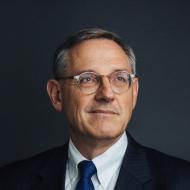A delegation of faculty and I will represent Saïd Business School in Davos at the World Economic Forum (21 – 24 January 2020).
The theme of this year’s World Economic Forum is Stakeholders for a Cohesive and Sustainable World, and brings together leaders from politics, business, and civil society to shape global, industry and regional agendas.
We are focussing on responsible innovation for inclusion and growth, and a bolder approach to business education. In our digital world, we need to understand how our use of technology underpins the development of an inclusive and fair society. Similarly, as business leaders are being asked to solve world problems, how can we, as business educators, help the leaders of tomorrow to manage ever more complex issues?
Paul Polman, Chair of the Saïd Business School Board, and I will be hosting a session looking at the need for bolder business education. As business moves towards a more expanded role in society and acknowledges its broader duties to its stakeholders and the planet, business education must change. The session will discuss how business schools need to adapt to help develop individuals who can manage multi-stakeholder environments alongside growing world challenges.
We are also bringing together leaders from industry, non-profit, and academia to discuss how new technologies can tackle the challenge of people’s loss of trust in government and business. Led by David Shirer, Associate Fellow, and co-convenor of Oxford’s Fintech and Blockchain online programmes, the debate will focus on how artificial intelligence, big data/analytics and blockchain can empower individuals and bring more people into the system. For instance, 3.5 billion people are currently unable to access mainstream financial services because they don’t have a valid identity. This leaves them vulnerable to high interest rates and contributes to a larger gap between rich and poor.
The Oxford delegation includes faculty with a wide range of research interests and expertise including climate change, leadership, corporate governance, innovation and technology, entrepreneurship, large family firms, behavioural economics, wellbeing, and cyber security.




